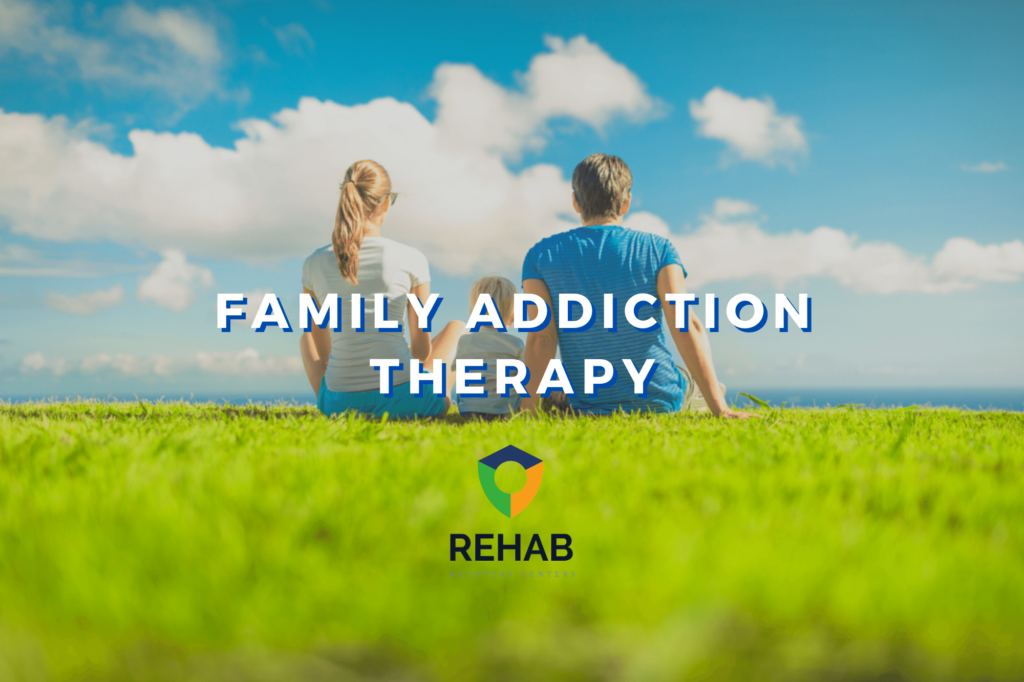Table of Contents
According to the National Institutes of Health, an estimated 10% of adults in the United States have struggled with substance abuse. If you’ve encountered the effects of addiction within your family, you are not alone.
We tend to think of rehab as a space where the individual struggling with substance abuse, alone, can detox and receive drug addiction therapy. However, addiction can cause pain and suffering within the entire family unit.
For that reason, family addiction therapy is a growing facet of rehab clinics across the country. Family addiction therapy creates a safe space for family members to reconnect and discuss any issues they may be facing.
Read on to learn more about how family addiction therapy works and how it can help your family to heal.
Addiction Affects the Entire Family
Addiction does not just affect the individual struggling with substance abuse. It affects the whole family.
When one member of a family unit is substance-dependent, a number of unhealthy relationships can arise. This includes codependency, in which one or more family members neglect their own needs and feelings in order to address the needs of another. It also includes enabling, in which any consequences for negative behaviors (such as substance abuse) are removed in order to avoid confrontation.
On top of these unhealthy relational behaviors, other factors may arise that are difficult to overcome. For example, one or more members of the household may feel unsafe or frightened, breaking both their comfort and trust. In some cases, responsibilities may shift to younger or less able members of the household, changing the family dynamics.
Plus, studies have found that there may be longterm impacts for children who grow up around addiction. These impacts can range from developmental and socialization issues to a higher risk for substance abuse in the future. Including children in family addiction therapy can negate some of these potential consequences down the road.
How Family Addiction Therapy Works
Some clients who go through substance abuse rehabilitation enter in-patient programs. However, family addiction therapy is considered an out-patient process. In other words, you and other members of your family do not have to stay on the grounds in order to participate in therapy.
There can be two different shapes that family addiction therapy takes. The first may come early in the client’s rehabilitation and is considered an intervention. During this time, family members speak with their loved one about why it’s important to them that they continue with their rehab treatment.
The second, cognitive behavioral therapy for addiction, is ongoing. One or more family members join the client in a therapy session guided by a registered counselor. During this time, they are able to address issues and receive guidance on how to move forward once the rehab treatment has subsided.
These sessions tend to cover a variety of topics that are primarily guided by members of the family. These topics include family history, communication, and self-care.
Two of the biggest goals of family addiction therapy are relational reframing and family behavior change. Relational reframing asks that members of the family learn to see the actions or words of another member in a new light. Family behavior change asks that members of the family recognize the way their own behaviors impact one another and move to a new system in which everyone works to benefit the family unit.
How Family Addiction Therapy Can Create Healing
You may be wondering how these therapy sessions can benefit you and others in your family. Let’s take a closer look at the way family addiction therapy can promote healing.
For the Family
It’s possible that systems of communication broke down in the midst of your loved one’s struggle with substance abuse. Removing the barrier of that substance will help, but it does not erase the past.
During family addiction therapy, you and others can express your concern and care. Perhaps your loved one felt that you were simply intruding upon their freedom or treating them with suspicion. This is an opportunity to express how you truly feel and address any unintentional behaviors that arose during that time.
Family addiction therapy also gives your loved one the opportunity to lay the groundwork for trust. One or several members of the family may feel wary or nervous around them. They may not trust that recovery will last, and now is the time for your loved one to apologize and to set attainable goals.
Perhaps the biggest source of healing is what family addiction therapy can do for your future. You will learn new communication techniques together. This provides a common background and language you can use moving forward, as well as an agreed-upon system of accountability.
For the Individual Struggling with Substance Abuse
Addiction is not an isolated issue. Individuals who struggle with substance abuse have often turned to those substances in order to cope with other issues in their life.
During family addiction therapy, your loved one can address what these underlying issues may be. This can provide you with the tools to address the root of the problem and help them stay sober after rehab. We often find that clients who have strong family support systems have a much easier time getting through their rehab program and staying sober afterward.
Where to Seek Help
If your loved one has struggled with substance abuse, family addiction therapy may be extremely beneficial. After all, addiction affects more than just the individual. It affects you, your siblings, your children, and whoever else may live with your loved one.
To find out more about comprehensive rehab programs, contact us today. We want to help you, your loved one, and your family move forward from this difficult time.
Get Help Today
Don’t go through the process of recovery alone. There are people who can help you with the struggle you’re facing. Get in touch with one today.


